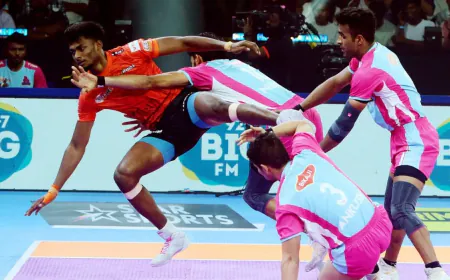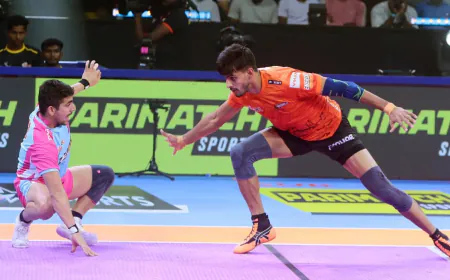When South Africa Out-Australianed the Aussies
What shifted for South Africa between these two encounters? One could argue that their previous triumphs over Australia in a T20I in Canberra and an ODI in Sydney earlier in 2024 played a crucial role in building their confidence. Perhaps the atmosphere of playing at home during the World Cup final added unnecessary pressure that they could now shed.

On Thursday at the Dubai International Cricket Stadium, two teams donned in green and gold clashed in a highly anticipated semi-final of the Women’s T20 World Cup. However, only one of those teams played with the characteristic confidence and style of Australia—and it was not Australia.
In a stunning display, South Africa not only defeated the historically dominant Australian team but completely outperformed them in every aspect. They didn’t just win; they thoroughly dismantled the Australians, showcasing a level of play that made the opposition look ordinary. In this match, South Africa out-Australianed Australia.
Emotions run deep among South Africans, often leading to wild swings between joy and despair. We celebrate exuberantly, sometimes for trivial reasons, and can quickly spiral into negativity. In heated moments, we express ourselves bluntly, even resorting to harsh insults. These traits can result in passionate support, particularly in sports like rugby, where South Africa’s Springboks have claimed the men’s World Cup title three times out of eight attempts. However, the same raw emotion does not always translate into success in cricket, especially under pressure, a lesson South African teams have painfully learned over 32 years of World Cup disappointments.
Despite these struggles in World Cups, South Africa has found success in ICC events. They won the men’s ICC KnockOut (now known as the Champions Trophy) in 1998 and have held the Test mace three times, although they have not done so since 2016. Nonetheless, winning the Champions Trophy does not equate to triumph in a World Cup. Test cricket revolves around narratives, while World Cups focus on knockout success, where only a select few teams thrive under immense pressure.
Historically, South Africa has not been one of those teams. They have emerged victorious in only four out of 19 quarter-finals or semi-finals across both men's and women's formats, with no titles to show from their two final appearances. In stark contrast, Australia boasts a track record of winning 16 of their 22 knockout matches and triumphing in 19 out of 24 finals. The Australians have claimed nearly half of all World Cups contested, while South Africa has been left without any.
South Africa did reach the final of the previous women’s T20 World Cup against Australia in February 2023, marking a significant milestone as the first senior team from the nation to do so, irrespective of format or gender. Yet, in a twist of fate, many players from both teams remained the same as in that match. Of the Australians, eight and of the South Africans, ten took to the field again on Thursday.
What shifted for South Africa between these two encounters? One could argue that their previous triumphs over Australia in a T20I in Canberra and an ODI in Sydney earlier in 2024 played a crucial role in building their confidence. Perhaps the atmosphere of playing at home during the World Cup final added unnecessary pressure that they could now shed.
Another significant change occurred in the coaching staff. Hilton Moreeng served as South Africa’s coach from December 2012 until May 2024. While he was a dedicated and respected figure, his long tenure saw him run out of fresh ideas and energy, resulting in a need for change. Enter Dillon du Preez, who embraced an optimistic approach and infused new life into the team. His tenure, albeit interim, brought a fresh perspective, and his previous experiences, such as having Sachin Tendulkar caught at slip in the IPL, inspired the squad.
Adding to this rejuvenation is Paul Adams, the spin bowling coach, who introduced unconventional techniques like grounding exercises and visualisation to enhance team performance. His approach has encouraged a more relaxed and open-minded atmosphere within the squad, allowing players to explore their potential and adaptability.
What sparked such a remarkable shift in South Africa’s performance against Australia on Thursday remains a mystery. Maybe it was simply a case of them playing without the burdens of past failures—focusing solely on the game in front of them, rather than the historical weight of their encounters with the Australians.
From the very beginning of the match, it was clear that South Africa was in command. Ayabonga Khaka struck first, dismissing Grace Harris with a brilliant catch from Anneke Bosch at backward point, a catch that had previously been the hallmark of Australian fielding prowess. Shortly after, Marizanne Kapp displayed exceptional skill by catching Beth Mooney’s attempted single and underarming the ball onto the stumps to run her out.
This set the tone for the match, as Laura Wolvaardt and Bosch forged a critical partnership that almost sealed the game for South Africa. Their 96-run stand came off just 65 balls, with both batters showing remarkable composure and aggression reminiscent of the Australians. They pressed on relentlessly, even as victory loomed, with Bosch smashing the winning runs with a fierce four off Megan Schutt.
As the match unfolded, one dugout filled with rising anxiety and disbelief watched as the South Africans capitalized on every opportunity, while the Australians appeared increasingly unsettled, their grip on the match slipping away.
This match was a testament to how a shift in mentality, fresh leadership, and a sense of newfound confidence can redefine a team’s performance. As South Africa’s women’s team looks to build on this triumph, they have not only changed the narrative of their World Cup journey but have also sent a powerful message to the cricketing world: they are no longer the underdogs but a formidable force in women’s cricket.
As the tournament progresses, fans eagerly await the next chapter in South Africa's cricketing saga. The team has shown that they can stand toe-to-toe with the best, and with their newfound determination and spirit, they are poised to create history.





















































